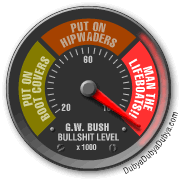Friday Nite Retro - Michael Martin Murphy
Welcome to Friday Nite Retro! Tonight, I got to learn all about Michael Martin Murphy; who recorded three songs that I was aware of. As it turns out, I wasn't all that aware! Murphy has performed everything from bubble-gum pop to folk to country to cowboy-western. Murphy was born in Oak Cliff, Texas in 1945, and grew up in Dallas. His love of the outdoors began at an early age when his parents took him and his brother Mark on regular trips to the country to visit relatives. When he was six years old, Murphy started riding horses on his grandfather's and uncle's ranches. Years later he would remember sleeping on his grandfather's porch under the stars listening to the older man's stories and cowboy songs. He also enjoyed being around these men of the land as they went about their work. These experiences made a deep impression on the young boy.
His early influences included Hank Williams, Bob Wills, and Woody Guthrie. At seventeen he took his first "professional" music job, playing western songs around the campfire at a Texas ranch. By the early 1960s, Murphey was playing the clubs in Dallas, performing country music, folk music, and rock music. He won over the conservative Texas audiences with his charm and talent, and soon formed a band that developed a significant following in the Dallas area.
After high school, Murphy moved to California, attended UCLA, and made a name for himself in the Los Angeles folk music scene. By 1964, he formed a musical group with an old Texas friend, Michael Nesmith, and John London and John Raines, under the name the "Trinity River Boys". Nesmith, who became one of the Monkees, asked Murphey to write them a song for the next Monkees album, and Murphey composed "What Am I Doing Hangin' Round."
In 1971, Murphy returned to Texas and became part of the so-called "Outlaw Country" movement, playing alongside other maverick performers such as Willie Nelson and Jerry Jeff Walker. He created a unique sound that combined his country, rock, and folk influences. It was during this period that Murphy wrote "Geronimo's Cadillac," a song about Indian rights that later became an unofficial anthem for the American Indian Movement in the early 1970s.
In 1975, he released his seminal album, Blue Sky, Night Thunder, which contained the hit "Carolina in the Pines" and what is perhaps his masterpiece, "Wildfire", a sentimental song about the ghosts of a woman and her horse. As a boy, he first heard the story of a ghost horse rescuing people in the desert from his grandfather. Years later, Murphy had a dream about this ghost horse and wrote the words and music the same day with songwriter Larry Cansler.
In May 1975, "Wildfire" reached No. 1 on the Radio and Records charts, No. 3 on Billboard's Pop Chart, and No. 1 on all Adult Contemporary Charts, giving Murphy a new level of commercial success and exposure. The song's success was due, in large part, to the unique harmonies supplied by Jeff Hanna and Jimmy Ibbotson from the Nitty Gritty Dirt Band, and the beautiful piano introduction based on a classical piece by Russian composer Alexander Scriabin, played by master jazz pianist Jac Murphy.
In 1982, Murphy signed with Liberty Records and produced two original albums, Michael Martin Murphy and The Heart Never Lies, and a compilation of re-recorded versions of his A&M, Epic, and Liberty hits. During the early 1980s, Murphy had significant commercial success with hits like "Still Taking Chances," "Disenchanted," "Don't Count the Rainy Days," "Will It Be Love By Morning," "Radio Land," and the No. 1 hit "What's Forever For" which also reached No. 19 on the Billboard Pop Singles Chart.
In 1983, Murphey was voted Best New Male Vocalist of the year by the Academy of Country Music. In 1985, his rerecorded version of "Carolina in the Pines" reached the Top 10.
In 1990, Murphy released the album Cowboy Songs — a project he'd been working on for several years. This was a pure labor of love, since no one had recorded an album of authentic cowboy songs in more than twenty years. The album contained Murphy's versions of old cowboy songs from the public domain such as "Tumbling Tumbleweeds," "The Old Chisholm Trail," the beautiful "Spanish is the Loving Tongue," the classic "The Streets of Laredo," and his tip of the hat to Roy Rogers, "Happy Trails." The album also contained Murphy's own "Cowboy Logic."
Michael Martin Murphy has had a successful music career that has spanned four decades and included such musical genres as folk, country, rock, popular, western, and cowboy music. As a singer, songwriter, and producer, he has contributed some of the best-loved songs of his generation. His songs have been recorded by Kenny Rogers, John Denver, Cher, Lyle Lovett, Flatt & Scruggs, Claire Hamill, Hoyt Axton, Roger Miller, Bobbie Gentry, Michael Nesmith, and the Monkees.
Murphey played a major role in the resurrection of the cowboy song genre, recording and producing some of the most successful cowboy music of the past forty years. His album Cowboy Songs inspired a whole series of albums. For his accomplishments in the Western and Cowboy Music field, Murphey received five awards from the National Cowboy and Western Heritage Museum, formerly known as the National Cowboy Hall of Fame) in Oklahoma City. His name is now synonymous with Cowboy Music.
Drop by his official site to see what he's up to today!
Labels: FNR, Michael Martin Murphy













2 Comments:
what's forever for and carolina in the pines- i remember :) good stuff.
Wildfire was one of my favorite songs when I was still a lad.
Post a Comment
<< Home